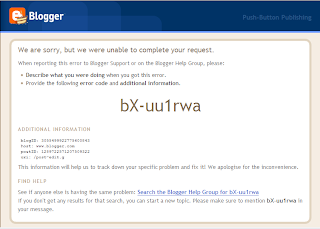As mentioned in my last post, I've written an article for T.E.S.T magazine which should be published later this week.
For those of you that don't get my magazine, here is a short version.
The article was inspired by a blog post by Michael Lopp ( aka Rands in Repose )
'The Book Stalker' where he admitted to having seven precious books.
My list of 7 is
1. Zen and the Art of Motorcycle Maintenance by Robert M PirsigA story about a quest for Quality - how could this not be on a testers list ?
I think there should be the equivalent of Godwins Law - call it Pirsigs Law in that a discussion of Quality is over when someone drags out a quote from this book
2. In Search of Excellence - Lessons from America's Best-Run Companies - Tom Peters and Robert WatermanAn interesting read now to see how many of these companies have survived but still a good read about companies striving to be excellent and what they do to try and achieve it
3. Testing Computer Software, 2nd Edition - Cem Kaner, Jack Falk, and Hung Q. Nguyen The first testing book I read when I was thinking of moving from writing bugs to finding them and a jaw dropping read as I realised that what we called testing was nothing like what it should be. The book I usually loan out to newbie testers
4. Everyday Scripting with Ruby: for Teams, Testers, and You by Brian MarickGreat example of how a language like Ruby can be an invaluable tool to a tester
5 Lean Software Development: An Agile Toolkit - Mary Poppendieck, Tom Poppendieck Got me thinking about Agile and how wasteful some projects I had worked on had been, led to me learning about Scrum, Toyota, Theory of Constraints, XP etc etc
6 The Secrets of Consulting - Jerry WeinbergNo list of test/QA books could be complete without a Weinberg book. All seven of my selections could have been his books and the man himself is a fine example. I settled for this one as I was moving into the consulting field and so needed to know about the Law of Raspberry Jam, the Orange Juice Test, Prescott's Pickle Principle and The Jiggler Role. As you might be able to tell from that list, the book is not a checklist of actions to be done - it makes you think about yourself, interactions with people and the role of a consultant
7 Bridging the Communication Gap by Gojko AdzicI got chatting to Gojko at a Skillsmatter agile event and this meeting led to me being one of the early reviewers of this book. Not only is it a great read but it's given me the idea of writing articles and maybe eventually a book
What books have influenced you ?
I'm also hoping to 'tag' some other bloggers to see what their books list looks like





